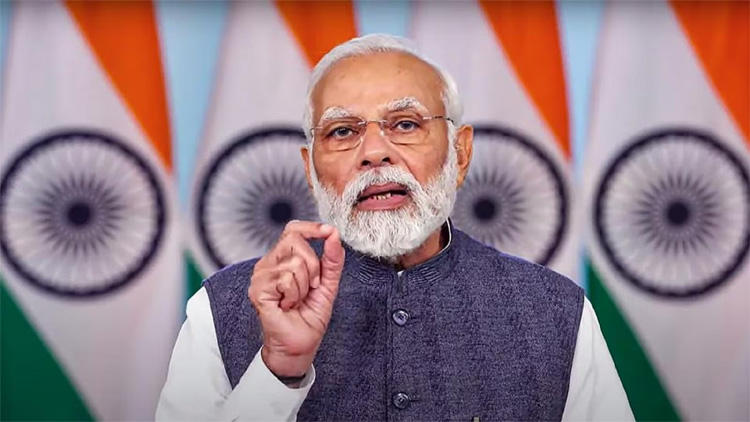Natural disasters becoming more frequent, have huge human impact: PM Modi
Prime Minister Narendra Modi on Wednesday said natural disasters are becoming more frequent, severe and need to be addressed with increased funding in disaster resilient infrastructure.
“We have witnessed natural disasters are becoming more frequent and more severe. The damage or the cost is usually reported in dollars but true impact on people, families and communities beyond numbers,” PM Modi said in his video message at the International Coalition for Disaster Resilient Infrastructure (ICDRI).
Earthquakes damage houses, making thousands of people homeless. Natural disasters can disrupt water and sewage systems, putting the health of people at risk. Some disasters can impact energy plants creating potentially dangerous situations. These things have a human impact, he added calling on countries to invest in disaster resilient infrastructure.
“After disaster immediate focus is naturally on relief and rehabilitation. After initial response, our focus should be resilient infrastructure. Nature and disasters have no borders. In a highly interconnected world, disasters can have a widespread impact. The world can be resilient collectively when countries are resilient individually,” he said.
He called countries to support the most vulnerable like the small island nations.
“CDRI focus is on global south. During our G20 Presidency disaster risk reduction working group was formed with financing at the heart of discussions,” he said.
“We have come a long way since 2019 when CDRI was launched. It is now a global coalition of 39 countries and 7 organisations,” PM added.
Aurélien Lechevallier, Director General for Global Affairs and Cultural and Economic Diplomacy, French Foreign Ministry, G7/G20 Sous-Sherpa of France said in a statement, “France sees CDRI as a crucial initiative for meeting our global climate change adaptation goals. As reflected in the theme of today’s conference, investing now in resilient infrastructure will save lives tomorrow and prevent vulnerable countries from having their development path disrupted by disasters.”
“As a multi-stakeholder coalition, CDRI has the unique capacity to leverage international initiatives such as the Paris Pact for People and the Planet, and tools such as the G20 Principles for Quality Infrastructure Investment, FAST-Infra sustainable infrastructure certification, and the SOURCE Platform initiated by multilateral development banks to boost investments in resilient infrastructure and provide comprehensive assistance to participating countries”, he added.
CDRI was launched by PM Modi during the United Nations Climate Action Summit on September 23, 2019, at New York.
The World Meteorological Organisation (WMO) flagged on Tuesday that Asia remained the continent worst hit by weather, climate and water-related hazards in 2023 and while it did not rank countries within the region, it listed several extreme weather events — heatwaves, floods, and a glacial lake outburst flood (GLOF) — that devastated parts of India last year, to highlight how the country was affected by these.
While floods and storms caused the highest number of reported casualties and economic losses, the impact of heatwaves became more severe in 2023, according to a new WMO report titled: The State of the Climate in Asia 2023.

